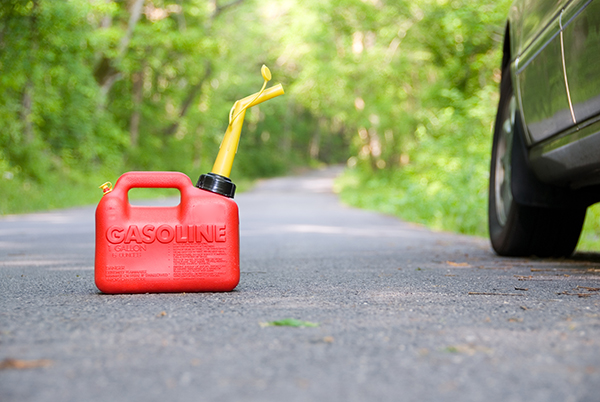
A prepper's life involves a lot of planning. Experienced preppers will have their survival stockpile ready before SHTF, and their families will already know about their emergency preparedness plans.
But if you're new to prepping, how do you make a SHTF plan that suits your own needs and lifestyle? (h/t to TheSurvivalistBlog.net)
When drawing up your plan, you need to make sure that it applies to as many survival scenarios as possible. A well-crafted emergency preparedness plan should also improve your group's reaction time and simplify their response to danger.
Detailed below are factors that you need to consider when drafting a SHTF plan. Make changes if the advice doesn't seem compatible with your lifestyle. Consider questions that come to mind as you read along, then apply them to your own plan as you refine it.
SHTF plan basics and mindset
Think of your basic set-up at home. Is everyone in good shape? Or do some family members need special accommodations or medication for certain health conditions? Your plan will be vastly different if you're a single, able-bodied person as opposed to when you're a family man with children and a dog or two.
The number of people in your family must be taken into consideration when deciding on how much gear you need to prepare and how much food, water, and other supplies need to be in your stockpile before SHTF. (Related: The 7 ways you can accidentally sabotage your own SHTF plans.)
How are your prepping skills? Can you hunt, start a fire, and build a shelter using basic tools? Take the time to learn crucial skills like hunting and fire starting to improve your chances of survival when disaster strikes.
The essential SHTF plan: Bug in if you can, bug out if you have to
Depending on your location and your neighbors' disposition, you can bug in if you think your family can weather through whatever scenario comes your way.
While things are quiet, get to know the people in your neighborhood. If there are other preppers in the area, consider setting up plans with them post-SHTF so you can be with like-minded people when things get dicey.
If your neighbors aren't into prepping, it might be wise to keep your plans to yourself.
Fortify your home to prepare for likely disasters that could occur in your area, like storms or earthquakes. Reinforce windows and door frames to prevent potential looters and even common burglars from breaking into your home.
If you have the means to do so, set up a hidden panic room in your house and fill it with supplies. Otherwise, continue gathering supplies for the family, and rotate items to avoid wasting anything.
When facing natural or man-made disasters, stay at home and lock your doors.
Survival supplies
Make sure your whole family, or those old enough to, knows how to use survival gear. Teach them useful skills like knot-tying and campfire cooking so everyone can help out if you need to evacuate.
If your stockroom is large enough, get enough supplies for the whole family (and your pet/s) for at least two weeks to six months.
Here's a checklist of supplies that you will need at home when SHTF:
- Food – Non-perishable with a long shelf life and easy to make or ready to eat.
- Water – About 15 gallons per person.
- Fire – You'll need a fire starter kit, lighters, and stormproof matches.
- Heat – This includes clothes and blankets, along with propane heaters and survival blankets.
- Light – Set aside candles, crank- or battery-powered flashlights, or lanterns.
- First aid – Prepare a simple "boo boo kit" and a kit for more serious injuries.
- Medication – Include both herbal remedies and prescriptions for family members with medical conditions like diabetes, etc.
- Hygiene – Prepare non-toxic cleaning products, hand sanitizers, and various toiletries.
- Communication – Be sure to have a crank- or solar- powered NOAA radio, flares, and whistles ready.
- Cash – Set aside small bills, as much as you can afford.
- Documents – Get clear copies of birth certificates, deeds and titles, insurance policies, maps, and other important documents.
- Tools – This includes various tools for building or repairing things around the house like a hammer, duct tape, sewing kits, wrenches, work gloves, and zip ties.
- Self-defense – This depends on your personal views and it may include firearms, ammo, or other weapons. If you have firearms, practice regularly so your skills stay sharp for when SHTF.
Tips for bugging out
Discuss your bug out plans with your family and decide on a suitable bug-out location (BOL) that you can all reach even if you get separated. Explore roads and paths to familiarize yourself with the BOL.
Ensure that your car is also bug out ready and that you can quickly load supplies if you need to evacuate. Your vehicle should be packed with supplies like clothing, rations, navigation, shelter, tools, water filtration, and fire-starting kits.
Maintain your car so it's ready to go at a moment's notice. Keep it simple so you don't attract unwanted attention if you're bugging out.
While you're preparing your survival food stockpile, you should also be finalizing your emergency preparedness plan. Once your plan is finalized, make sure your whole family knows what to do and where to go, especially if you need to bug-out when SHTF.
Sources include:
Please contact us for more information.





















